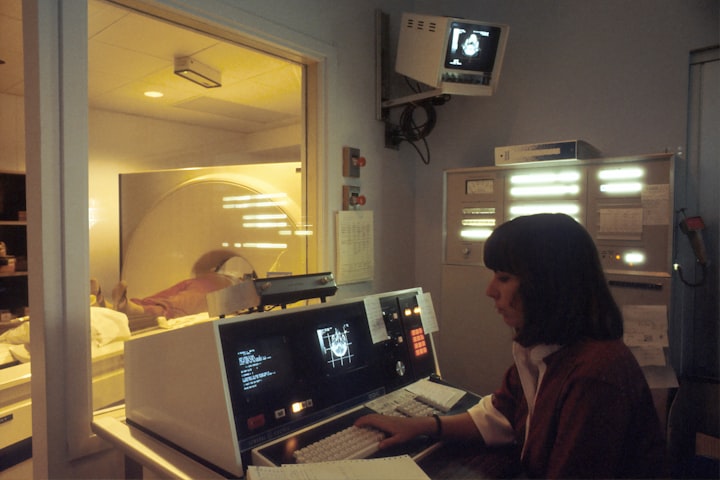
In the ever-evolving landscape of healthcare, breakthrough technologies and transformative innovations have the potential to revolutionize the way we diagnose, treat, and manage diseases. From artificial intelligence (AI) to precision medicine, these advancements are paving the way for a future where personalized and efficient healthcare is within reach for everyone. In this article, we will explore some of the most promising breakthrough technologies that are reshaping the healthcare industry.
One of the most exciting developments in healthcare is the integration of AI and machine learning algorithms into clinical practice. AI has the power to analyze vast amounts of medical data, including patient records, genetic information, and clinical trials, to identify patterns and make predictions with a level of accuracy that surpasses human capabilities. By leveraging AI, healthcare professionals can make more informed decisions, leading to improved diagnoses and treatment plans.
Another area where AI is making a significant impact is in medical imaging. Traditional radiology techniques have been enhanced by AI algorithms that can detect abnormalities in medical images such as X-rays, MRIs, and CT scans. This not only speeds up the diagnosis process but also improves accuracy, reducing the risk of misinterpretation and enabling early detection of diseases.
Precision medicine is another transformative approach that tailors medical treatments to individual patients based on their unique genetic makeup, lifestyle, and environmental factors. By analyzing an individual's genetic information, doctors can determine the most effective treatment strategies, minimizing adverse reactions and maximizing therapeutic outcomes. Precision medicine has the potential to revolutionize the treatment of diseases like cancer, where targeted therapies can be developed based on specific genetic mutations.
Telemedicine, fueled by advancements in telecommunications and mobile technology, is making healthcare more accessible and convenient for patients. Telemedicine allows patients to consult with healthcare professionals remotely, reducing the need for in-person visits and enabling healthcare providers to reach underserved populations. Through video calls, chat platforms, and remote monitoring devices, patients can receive medical advice, follow-up consultations, and even receive prescriptions from the comfort of their homes.
Another breakthrough technology in healthcare is the Internet of Medical Things (IoMT). The IoMT refers to the network of medical devices, wearable sensors, and mobile applications that collect and transmit patient health data in real-time. These devices can monitor vital signs, track medication adherence, and provide valuable data for healthcare professionals to make informed decisions. The IoMT has the potential to improve patient outcomes by enabling proactive interventions and remote patient monitoring, ultimately reducing hospital admissions and healthcare costs.
Advancements in genomics and gene editing technologies are also revolutionizing healthcare. The Human Genome Project has paved the way for a deeper understanding of the human genome, leading to breakthroughs in the identification and treatment of genetic disorders. CRISPR-Cas9, a revolutionary gene-editing tool, has the potential to correct genetic mutations, opening up possibilities for curing previously untreatable diseases.
Blockchain technology is another innovative solution that has the potential to transform healthcare by ensuring data integrity, security, and interoperability. By using decentralized and encrypted ledgers, blockchain can securely store and share patient health records, enabling seamless access to medical information across healthcare providers. This can lead to better coordination of care, reduced medical errors, and improved patient outcomes.
These breakthrough technologies and transformative innovations are revolutionizing the healthcare industry, bringing us closer to a future where healthcare is personalized, efficient, and accessible to all. From AI-powered diagnostics to precision medicine and telemedicine, these advancements have the potential to improve patient outcomes, enhance the doctor-patient relationship, and drive down healthcare costs. As technology continues to advance, we can expect even more groundbreaking innovations that will shape the future of healthcare.
In conclusion, the revolution in healthcare driven by breakthrough technologies and transformative innovations is reshaping the way we approach healthcare delivery, diagnosis, treatment, and management. From artificial intelligence and precision medicine to telemedicine and the Internet of Medical Things, these advancements are paving the way for a future where healthcare is personalized, efficient, and accessible to all.
The integration of AI and machine learning algorithms is revolutionizing clinical practice by enabling more accurate diagnoses and treatment plans. Medical imaging enhanced by AI algorithms is accelerating the detection and diagnosis of diseases, improving patient outcomes. Precision medicine is tailoring treatments based on individual genetic makeup, maximizing therapeutic outcomes and minimizing adverse reactions.
Telemedicine is bridging the gap between healthcare providers and patients, offering remote consultations, reducing the need for in-person visits, and providing access to underserved populations. The Internet of Medical Things is collecting and transmitting real-time patient data, enabling proactive interventions and remote monitoring, ultimately reducing healthcare costs and improving patient outcomes.
Genomics and gene editing technologies are transforming the understanding and treatment of genetic disorders, offering potential cures for previously untreatable diseases. Blockchain technology is ensuring the security and interoperability of health data, improving coordination of care and reducing medical errors. Wearable technology, virtual reality, 3D printing, big data analytics, robotics, and automation are also playing vital roles in revolutionizing healthcare.
These breakthrough technologies and transformative innovations are empowering patients, improving the accuracy and efficiency of diagnoses, enhancing the doctor-patient relationship, and driving down healthcare costs. As technology continues to advance, we can expect even more groundbreaking innovations that will shape the future of healthcare, bringing us closer to a world where personalized and effective healthcare is a reality for everyone.
About the Creator
Econexus
Welcome to my blog "Econexus" a passionate advocate for health, wealth, and literacy. Here, I aim to empower and inspire you to live a life of holistic well-being and prosperity.






Comments
There are no comments for this story
Be the first to respond and start the conversation.